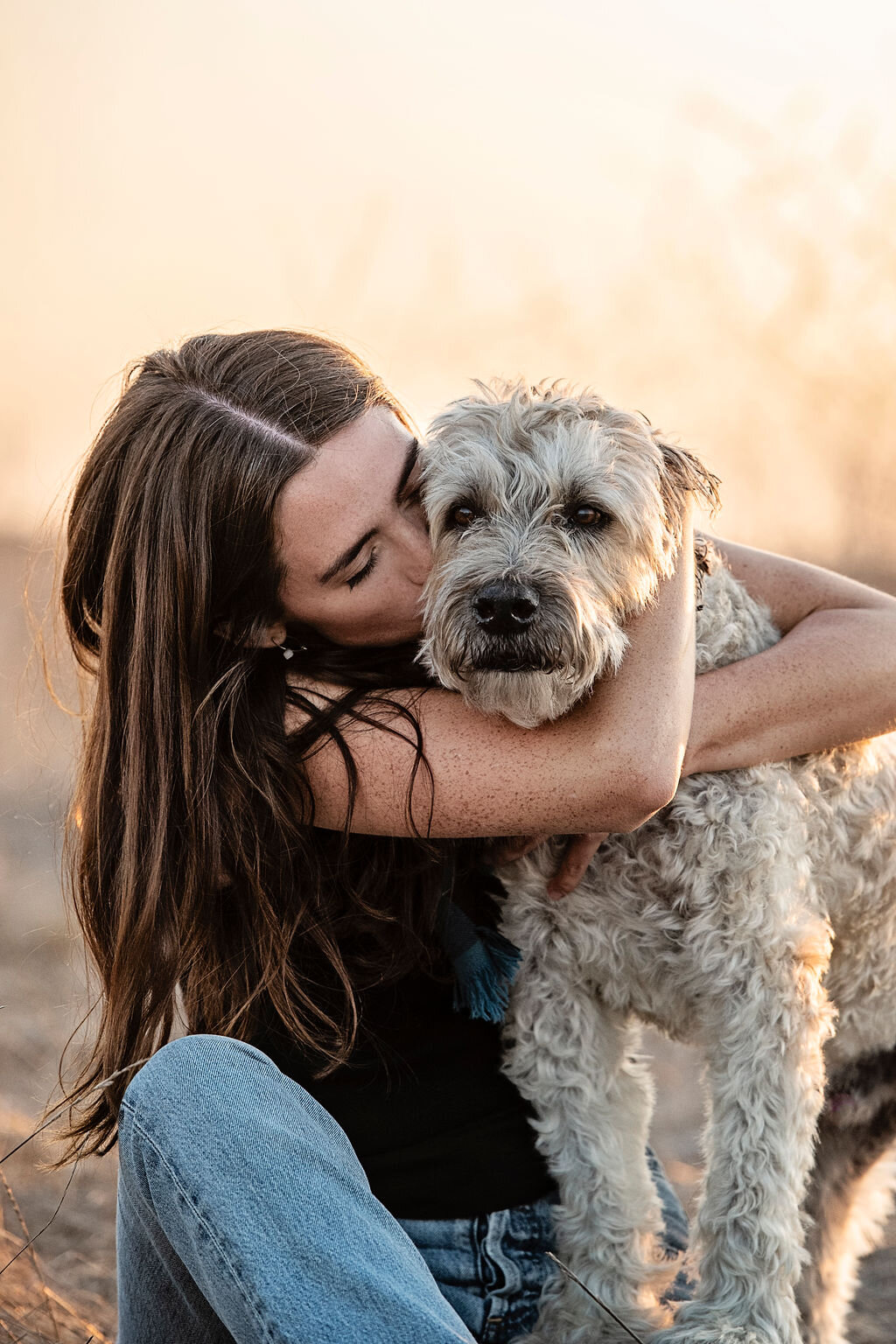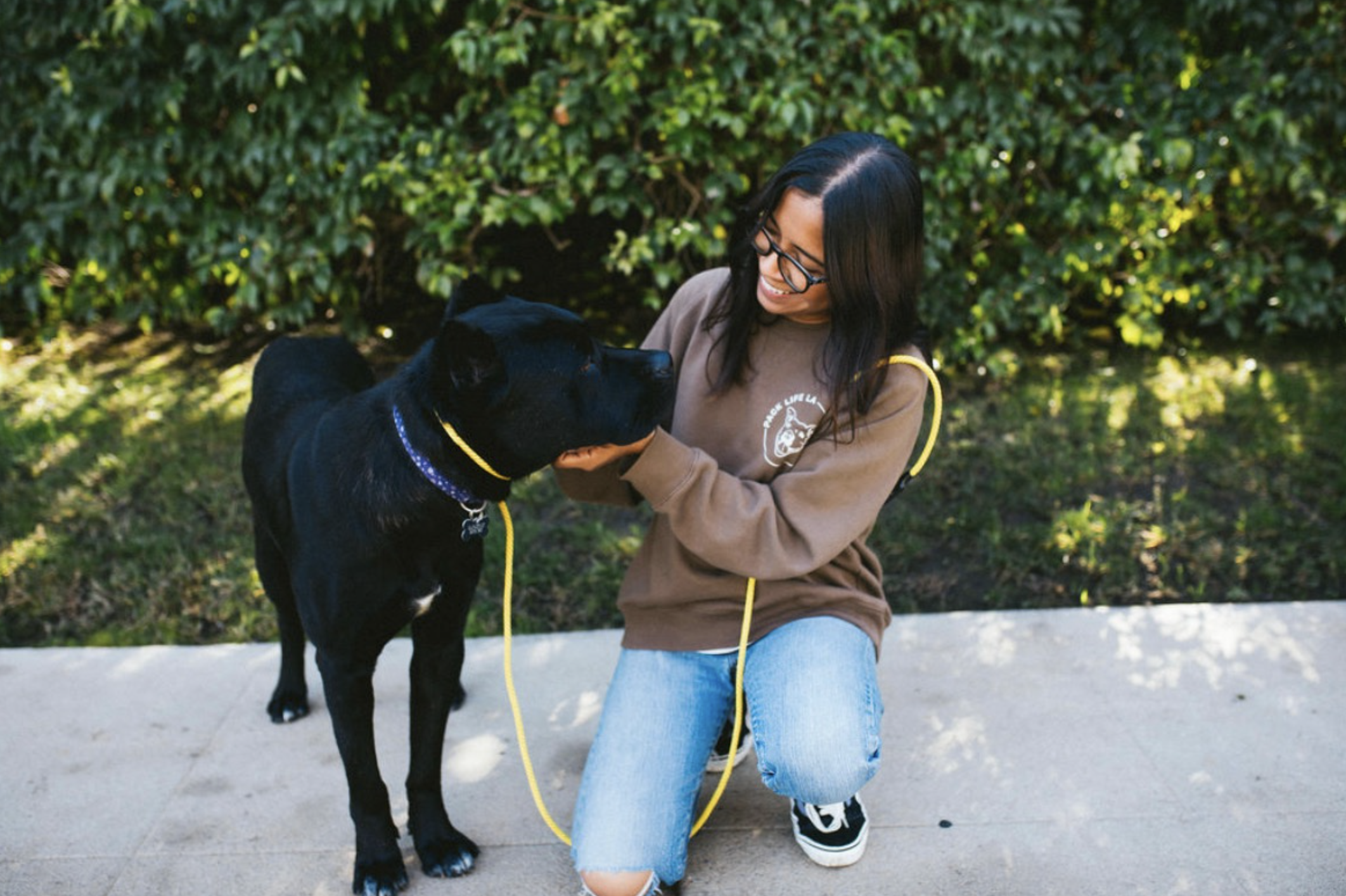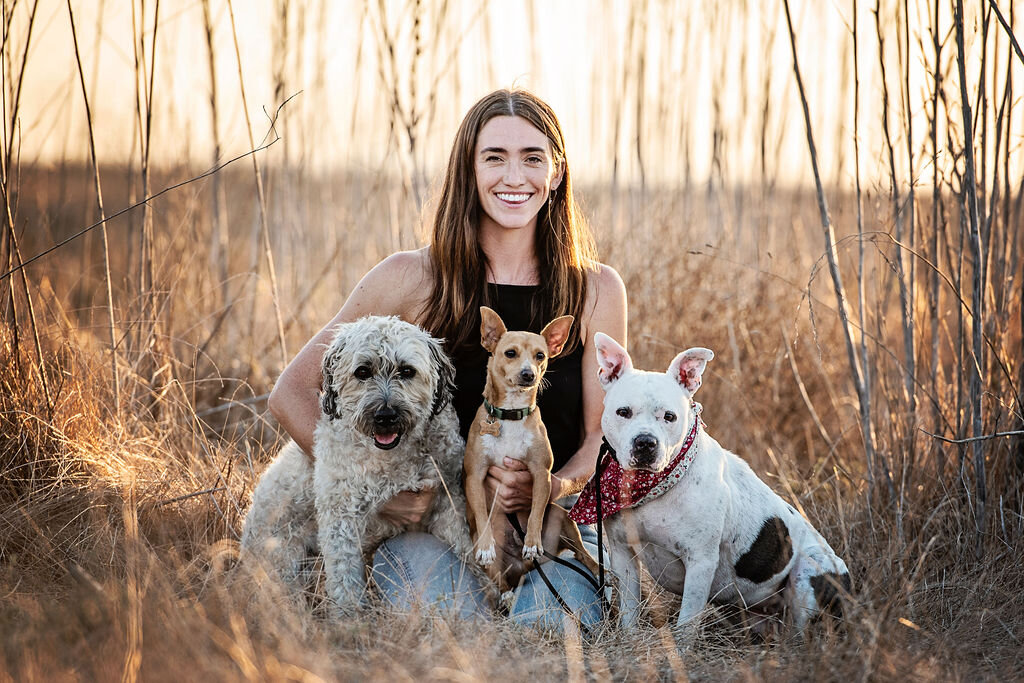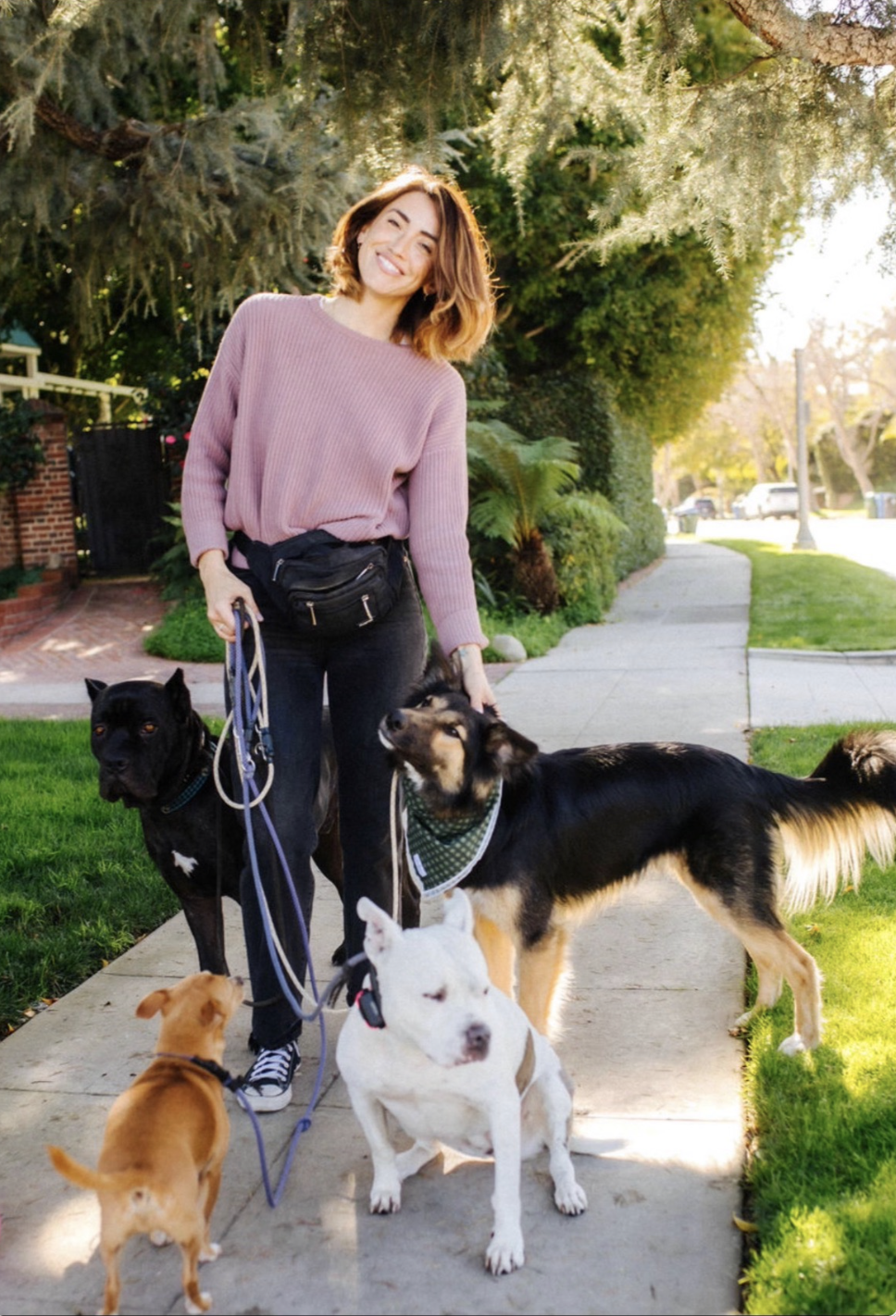Creating a Balanced and Healthy Pack
Who We Are
At Pack Life LA we believe in a holistic approach to best set you and your dog up for success and to create a harmonious relationship between owner and dog.
What Affects Our Dogs Behavior
I believe the biggest factors that affect our dogs behavior include genetics, drives, hormones, nutrition, training and our lifestyle we have with our dogs.
1. Genetics: A dog's breed and genetic predispositions can certainly play a role in their behavior. For instance, some breeds may be more prone to certain actions due to specific traits bred into them, such as a hunting or herding instinct.
2. Drives: Drives are instinctual and can include prey drive (the desire to chase), pack drive (the desire for social interaction), and defense drive (the need to protect oneself or territory). These drives can greatly influence a dog's reactions and behaviors.
3. Hormones / Nutrition: The biggest impacts on our dogs' hormones come from their lifestyle and training, as well as the state of their gut health (deeply impacted by nutrition). The gut, often referred to as the "second brain," influences the production and regulation of essential hormones and neurotransmitters that play critical roles in a dog's behavior and overall well being. Hormones like cortisol, adrenaline, and others can affect a dog's mood and behavior. Nutrition also plays a significant part as what a dog eats can impact their energy levels, health, and in turn, their behavior. For example, diets that lack certain nutrients can lead to lethargy or hyperactivity.
4. Training/Lifestyle: This includes the environment in which the dog lives, the amount of exercise and mental stimulation they receive, the methods used to train them, and their relationship with their owner or handler. Dogs thrive on consistency and knowing what's expected of them. Establishing clear rules and boundaries helps to create a secure environment for the dog, which can lead to more predictable behavior, whereas inconsistent rules or boundaries can confuse a dog and lead to behavior problems. This is a crucial part of changing patterns/behaviors and creating healthy behaviors with our dogs and where I come in!
It's important to note that while all of these factors can impact behavior, they can also interplay with each other. For example, a dog's genetic predispositions may influence its drives. Conversely, a well-structured environment and proper training can help manage and direct those drives in a positive way. Understanding our dogs behavior, body language, what affects their temperament (drives, genetics, lifestyle, training) helps us better understand our dogs to set them up for success.
SERVICES
We provide the knowledge and services for dog owners to become the pack leaders our dogs want and need us to be. By honoring our dogs as pack animals first we can better understand, communicate, and advocate for our dogs.
Memberships
The Pack Life Membership page gives you full access to all things training.
In addition to an endless amount of training videos and complimentary group zooms, this membership includes the following eBooks:
What Affects Our Dog’s Behavior
21 Day Restart
Teaching Place
Crate
Loose Leash Walking
Puppy 101
Ecollar ebook
Nutrition and Hormones ebook
Bringing Home a Baby
Need virtual help or additional help in between in person training? Check out my membership page!
This month to month membership has hundreds of videos and numerous ebooks. The membership page covers how to reset with your dog and start to build a relationship you’re hoping for with your pup - full of trust and respect. The membership page is an incredible source for both new and experienced dog owners and trainers alike. By covering a comprehensive range of training needs, members will have the opportunity to deepen their understanding and skills in various areas, making it a highly valuable learning opportunity and experience.
The membership page covers nailing your loose leash walk, mindset place work, crate, loose leash walking, recall, ecollar, proper play, how to introduce your dog to other dogs, and more fundamentals for you and your pup!
The membership page teaches you how to work through leash reactivity, strangers danger, separation anxiety, reading body language, resource guarding and other common problem behaviors.
Theres fun videos like how to introduce your dog to a pool and get them comfortably walking on a treadmill.
The best part? You get to see Samantha working with a wide range of personalities and problem behaviors all under one membership.
There are filmed private sessions, day trains, recording group zooms where you can watch other people’s questions, board and trains, my workshops and Q+A videos.
And now we have a whole wellness section with yoga flows, breath work and meditations.
My FAVORITE part of the membership page is that there are complimentary member group zooms held at least 10x / month. This is the perfect place to ask your personal questions, share your struggles and success, form a community and listen to other people’s questions. If you’re not taking advantage of the group zooms you are truly missing out on one of the many things this page offers.
Use discount code FIRSTTIMER for 50% off your first month.
Workshops
Pack Life LA offers three day workshops held mainly in Los Angeles but we also offer workshops around the world. In 2024 we are planning to be in LA, North Carolina and Australia.
What is the difference between a Working Spot vs. Non-working Spot?
Our workshops encourage a flexible learning environment, accommodating those who want hands-on experience, as well as those who prefer to observe and learn.
1. **Working Spot:** This is an interactive role where participants bring their dogs to partake in the training. Whether attendees are looking to work with their own dogs or are traveling and need a dog provided, there is flexibility for accommodation. Every student with a working spot will have the opportunity to personally execute training methods and techniques. This practical, immediate feedback is beneficial for both the dog and the owner. Each challenge or success becomes a real-time learning experience.
2. **Non-working Spot (Audit Spot):** This option is ideal for individuals who may not have a dog or prefer to learn by watching others first. Observers can learn from multiple scenarios, as each dog-handler team might face different challenges. This allows a broad perspective on how to handle various situations. Observers can take notes, ask questions and absorb information without having to manage a dog simultaneously.
Both the 'working' and 'non-working' spots have their own advantages, depending on the learning style and needs of the attendees. Regardless of the option chosen, every participant stands to gain a wealth of knowledge from this experiential workshop.
What will we cover?
Our workshops are an incredible opportunity for both new and experienced dog owners and trainers alike. By covering a comprehensive range of training needs, participants will have the opportunity to deepen their understanding and skills in various areas, making it a highly valuable experience.
Key aspects will likely include:
**Loose Leash walking, leash work, place work and crate training**, which are critical for control, connection, building neutrality around stimuli and safety, especially in public spaces or when the dog needs to be secure at home.
**Addressing specific behavioral issues**, such as reactivity, aggression, resource guarding, separation anxiety, or excessive barking.
**Ecollar using the mini educator**, including how to utilize tools like eCollars effectively and humanely. Incorporating the use of an eCollar also opens up a broader range of training techniques and methods for those who are interested or already utilizing this tool.
**Building a strong, respectful relationship with your dog** through understanding their communication cues, providing appropriate exercise and mental stimulation, and learning how to effectively use reward-based positive reinforcement.
**Basic obedience training**, where participants can learn how to effectively teach their dogs commands like "sit," "stay," "come," and "leave it."
**Reading Body Language**Dogs communicate largely through body language. By understanding what their movements, posture, and facial expressions indicate, you'll be able to interpret their mood, stress level, and intentions. This helps prevent mishaps and misunderstandings between you and your dog, strengthening your relationship.
**Healthy Appropriate Play**: Understanding what constitutes healthy play is key to ensuring your dog is socializing well and not bullying or being bullied.
We will cover appropriate play with other dogs in addition to with humans in order to exercise, physically and mentally drain your pup, redirect behavior like prey drive for proper fulfillment and practice impulse control.
**Impulse control and ultimately how to have a calm, neutral and confident dog**
Ultimately our workshop is set to address some of the most common and important aspects of dog training,with an emphasis on offering personalized advice and training strategies.
Emphasizing trust and respect is a crucial aspect of dog training that often gets overlooked. Instead of relying solely on commands and control, creating a bond based on trust and respect can lead to a much happier and more cooperative dog. Participants will learn how to assert themselves as calm and confident leaders whom their dogs feel secure and happy to listen to. This can make a significant difference in the overall home environment and the happiness of both the dog and owner. No matter what the primary concern is for each attendee, there will be something valuable to learn.
Will food be provided?
Lunch is provided Friday and Saturday. We provide brunch and dinner on Sunday. Providing lunch daily and a special dinner on Sunday definitely builds a sense of camaraderie and community among attendees. I believe this makes the workshop not only educational but also a truly enjoyable event to network and connect with other dog enthusiasts.
Schedule
**Day 1 (Friday) and Day 2 (Saturday)**:
* 10:00 AM: Workshop begins. This is a great time for introductions and an overview of the day's activities.
* 10:00 AM - 1:00 PM: Morning session. Day 1 and 2 every person who has a working spot will have a 20 minute session to cover whatever you and your dog needs. Every dog will go 2-3x the first two days.
* 1:00 PM - 2:00 PM: Hour Lunch break. This gives participants a chance to rest, ask further questions in a casual setting, and build connections with the other attendees.
* 2:00 PM - 3:00/4:00 PM: Afternoon session.
My goal is to start the workshop later in the morning and by including a lunch break, we are ensuring that participants will have the energy and focus to absorb the lessons.
**Day 3 (Sunday)**:
* 11:00 AM: Workshop begins. This later start time allows for individuals to rest after the intensive sessions of the previous days. We will have breakfast and coffee.
* 11:00 AM - 4:00 PM: Morning session. Continue with practical exercises and work in more advanced concepts and techniques. Wrap up any remaining lessons or activities, and give participants time to apply what they've learned in a controlled environment, and offer advice for further practice at home.
* Post-Session: Early dinner is included. This is a great way to conclude the workshop on a relaxed and positive note, offering a chance for participants to share their experiences, discuss their progress, build community, and ask any final questions.
This schedule ensures that participants have a comprehensive, enjoyable, and rewarding experience over the course of the three-day workshop. It provides a balance of practical experiences with time for rest and reflection.
Can I record?
Recording training sessions can be a great learning tool not only for dog trainers but also for the owners. It allows for review, reflection, and improvement. I record our sessions and they are shared on the membership page so you can go back and learn and others can learn as well - this also allows you to stay in the moment to better learn.
That said there are a lot of trainers that do not allow attendees to record or take photos - We do! I always strive to maintain transparency in my techniques. You're always welcomed to record any private sessions, workshops, or day retreats we have together. All dogs deserve to be treated with kindness and respect, whether in an open space or behind the scenes and at Pack Life LA we do exactly that. I have complete confidence in my methods, and I believe they’re suitable for all to see and learn from.
My goal is to build a trusting relationship between the dog and owner. I strive to teach you methods that are humane, transparent, and effective.





